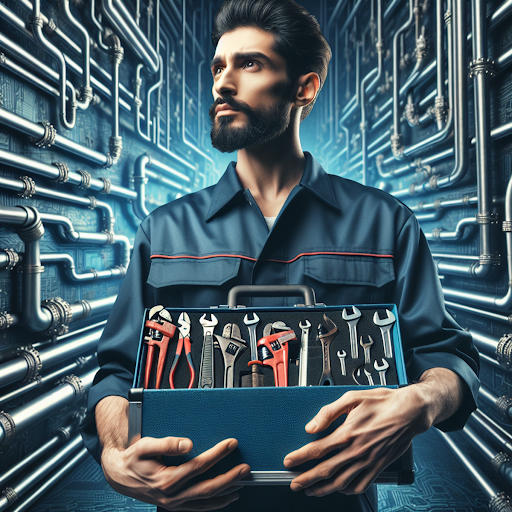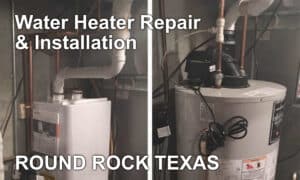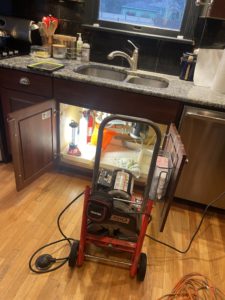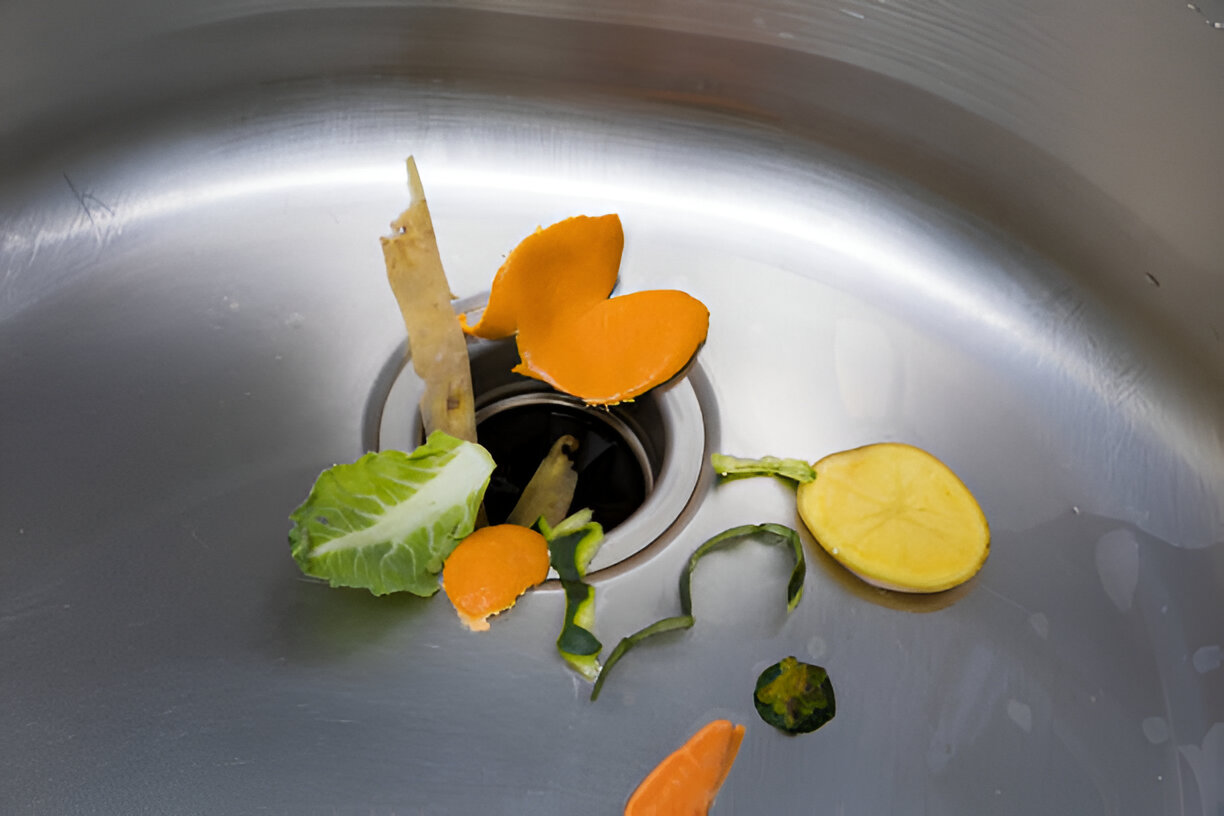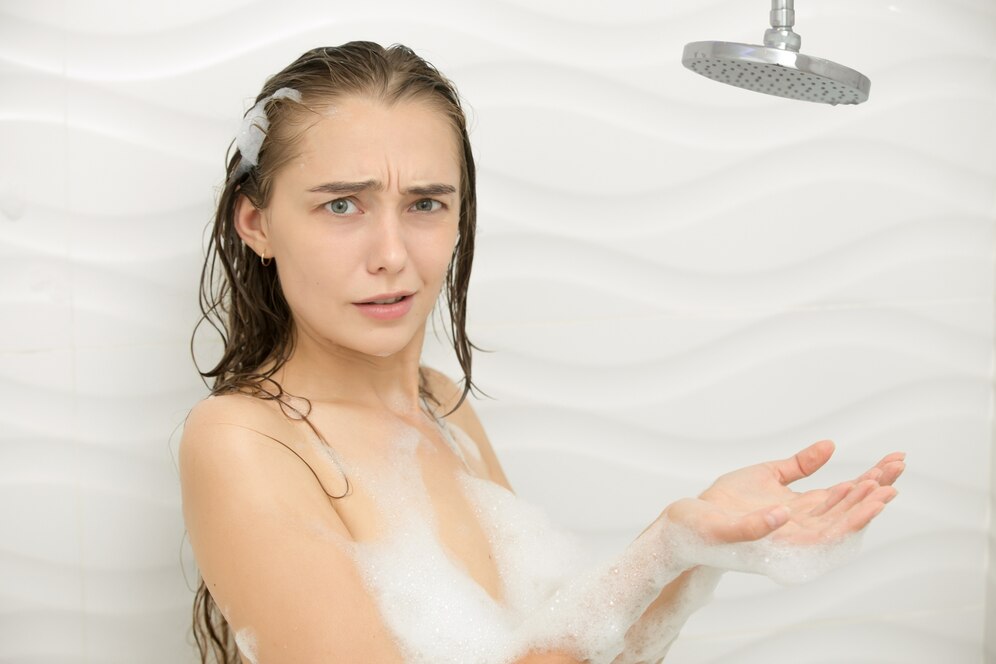Understanding Plumbing Maintenance and the Value of Professional Help Keep Essential Plumbing Tips
Maintaining your plumbing is crucial for both safety and cost-efficiency. A well-kept plumbing system ensures clean water supply and effective waste removal, reducing risks of health hazards and property damage. This guide reveals 31 essential plumbing tips to help you manage common issues with confidence, drawn from the expertise of seasoned professionals. Whether you’re handling a minor leak or planning a major renovation, these insights will help you make informed decisions and keep your plumbing system in top shape.
The Importance of Hiring a Professional Plumber
For complex plumbing tasks, the expertise of a licensed plumber is indispensable. Plumbing systems are complex and require skilled professionals to ensure repairs and installations meet safety standards and building codes. A licensed plumber offers years of experience and the necessary training to handle your plumbing needs efficiently.
Why Choose a Licensed Plumber?
- Professional Expertise: Trained to address complex problems beyond DIY fixes.
- Safety: Proper handling of issues minimizes risks of water damage or gas leaks.
- Compliance: Ensures all work meets code requirements, avoiding legal issues and fines.
How to Find a Reliable Plumber
- Seek Recommendations: Ask friends, family, or neighbors for recommendations based on their positive experiences.
- Check Online Reviews: Look for plumbers with high ratings and positive feedback on trusted review sites.
- Specialization Matters: Choose plumbers who specialize in the services you need, such as leak detection or fixture installation.
Getting Multiple Quotes
- Contact Several Plumbers: Obtain quotes from multiple professionals to gauge the standard cost for your service.
- Beware of Low Prices: Extremely low estimates may indicate subpar service or hidden costs.
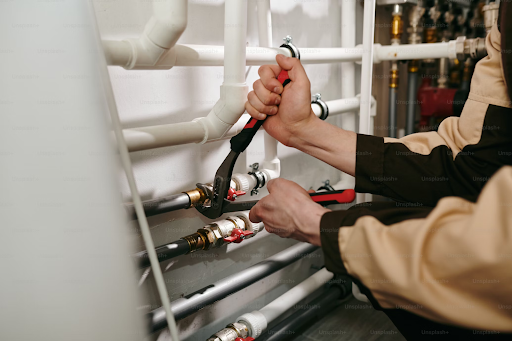
Understanding Your Home’s Plumbing System
Your home’s plumbing system is crucial for effective management and emergency response. Knowing how to quickly locate and shut off the main water valve can prevent extensive damage in emergencies like pipe bursts.
Key Components of Your Plumbing System
- Main Water Valve: Controls the water flow into your home. Typically found near the water meter or where the main line enters the house. Familiarize yourself with its location and ensure it functions properly.
- Fixtures and Components: Includes faucets, toilets, water heaters, and other appliances. Understanding these elements helps you identify issues early.
By learning how your plumbing system works, you’re better prepared to handle problems and prevent minor issues from becoming major ones. Regularly inspect fixtures, listen for drips or unusual noises, and observe water drainage patterns.
Tips for Effective Plumbing Management
- Create a Plumbing Map: Draw a map of your home’s plumbing layout, marking shutoff valves for various fixtures. This can be invaluable during emergencies or when communicating with a plumber.
- Regular Inspections: Check fixtures and components regularly to catch potential problems early.
- Monitor Changes: Be alert to changes in water pressure or unusual drain odors, as these can signal underlying issues.
- Avoid Clogs: Prevent clogs by not disposing of grease, oil, or non-flushable items down the drains.
- Use Water-Efficient Fixtures: Installing these can reduce water waste and lower utility bills.
Essential Tools for Minor Repairs
Having the right tools can simplify minor plumbing repairs. Here are some must-haves:
- Plunger: Essential for clearing blockages in sinks and toilets. Ensure you have both sink and toilet plungers.
- Pipe Wrench: Useful for tightening or loosening threaded pipes and fittings. Its adjustable design fits various pipe sizes.
- Plumbing Tape: Seals pipe threads to prevent leaks. An inexpensive yet crucial tool.
- Adjustable Wrench: Handy for tasks involving hex-shaped nuts and fittings, such as showerheads or faucets.
- Plumber’s Snake: Effective for clearing stubborn clogs that a plunger cannot handle.
- Basin Wrench: Designed for working on faucets, with a long shaft and swiveling jaw to reach nuts behind the sink.
Equipped with these tools, you’ll be prepared for minor plumbing issues, though complex problems may still require professional assistance.
Common Plumbing Issues and Troubleshooting
Addressing common plumbing problems with basic tools can save you time and money. Here’s how to tackle a few issues:
- Dripping Faucet: To fix a dripping faucet, turn off the water supply, disassemble the handle, inspect and replace the washer or O-ring if worn, then reassemble and test.
- Clogged Drain: Try natural methods like plunging or using a baking soda and vinegar solution before resorting to chemical cleaners.
- Running Toilet: Check the flapper valve in the tank. Ensure the chain isn’t tangled or too short, and adjust or replace parts as necessary.
Preventive Maintenance Tips
- Regular Inspections: Watch for leaks, drips, and corrosion. Slow-draining sinks or showers may indicate developing clogs.
- Monitor Water Pressure: High pressure can damage pipes. Install a pressure regulator if pressure exceeds 60 psi.
- Use Drain Guards: Install guards to catch hair and debris, preventing clogs. Clean them regularly.
When to DIY vs. Call a Professional
While DIY repairs can be satisfying and cost-effective, some tasks are best left to professionals:
- Complex Repairs: Tasks like replacing pipes or dealing with sewage backups require specialized tools and knowledge.
- Permit-Required Jobs: Certain repairs need permits for safety reasons, such as moving plumbing lines.
- Emergencies: For burst pipes or severe leaks, an emergency plumber can quickly address and repair the damage.
Assess the complexity of the problem before deciding whether to tackle it yourself or call a professional. Avoid costly mistakes by opting for expert help when needed.
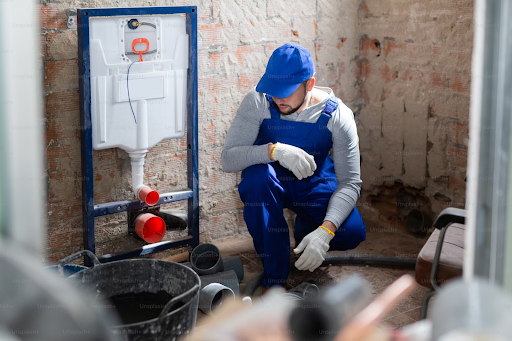
Dealing with Plumbing Emergencies
As a homeowner, responding swiftly to plumbing emergencies, such as burst pipes or severe leaks, is crucial to prevent extensive damage and health hazards from mold. Follow these steps to manage the situation effectively:
Step 1: Shut Off the Main Water Valve
The main water valve controls the water flow into your home, and turning it off can help prevent further damage. Here’s how to locate and shut off the valve:
- Find the Valve: Usually located near the water meter or where the main water line enters your home.
- Turn Off the Valve: Use a wrench or pliers to turn the valve clockwise until it is fully closed.
Step 2: Assess the Situation
After turning off the water, evaluate the extent of the damage:
- Stay Safe: Avoid contact with electrical devices in the affected area to prevent electrocution.
- Remove Water: Use buckets or towels to soak up as much water as possible.
- Document Damage: Take photos or videos of the damage for insurance purposes.
Step 3: Call an Emergency Plumber
For serious issues, it’s best to leave repairs to the professionals:
- Expertise: Emergency plumbers have the knowledge and experience to handle complex problems.
- Specialized Tools: They possess the necessary tools and equipment for quick, effective repairs.
- Safety: Professionals ensure your home is safe and minimizes further damage.
Acting quickly and knowing who to call can significantly reduce the impact of a plumbing emergency on your home.
The Importance of Regular Plumbing Inspections
Regular inspections by a qualified plumber are essential for maintaining the reliability of your plumbing system. These inspections can uncover hidden issues, such as leaks, that could lead to severe damage if not addressed.
Key Reasons for Regular Inspections:
- Early Detection: Professional plumbers use specialized tools to find hidden leaks that could cause extensive damage.
- Cost Savings: Identifying problems early prevents costly repairs and major damage.
- Peace of Mind: Regular inspections assure you that your plumbing system is functioning properly.
Incorporating professional inspections into your home maintenance routine helps ensure the health of your plumbing system. Plumbers can check pipes, joints, faucets, and appliances for signs of wear and tear, corrosion, and other issues that may lead to larger problems.
Investing in regular inspections protects your home from unexpected plumbing failures and their associated costs and inconveniences. Prevention is always better than cure in plumbing maintenance.
Conclusion
With these essential plumbing tips, you’re equipped to manage your plumbing system more effectively. Start applying these insights to enhance your home’s plumbing:
- Bookmark This Guide: Keep this resource handy for troubleshooting or preventive maintenance.
- Seek Professional Help: For complex issues, rely on a trusted plumber’s expertise.
- Share the Knowledge: If you found this information useful, share it with fellow homeowners.
Proactive plumbing maintenance can save you from significant costs and disruptions. Armed with this knowledge, you’re better prepared to maintain a smoothly running home.
FAQs (Frequently Asked Questions)
- Why is it important for every homeowner to be knowledgeable about plumbing maintenance?
It is crucial for every homeowner to be knowledgeable about plumbing maintenance as it ensures their safety and can potentially save them money in repairs. - How can I find a reliable plumber for complex plumbing tasks?
You can find a reliable plumber by doing thorough research, asking for recommendations from trusted sources, and obtaining multiple quotes before making a decision on which plumber to hire. - What are some essential tools that every homeowner should have for minor plumbing repairs?
Some essential tools that every homeowner should have for minor plumbing repairs include a plunger, pipe wrench, and plumbing tape. - What are some preventive maintenance tips to avoid costly plumbing problems?Some preventive maintenance tips to avoid costly plumbing problems include conducting regular inspections of your plumbing system, monitoring water pressure, and using drain guards or strainers to prevent clogs.
- When should I know whether to DIY or call a professional for plumbing issues?
It’s important to understand the limits of DIY plumbing and know when it’s best to leave it to the professionals. Certain situations may require the expertise of a licensed plumber. - What actions should I take when faced with a burst pipe or severe water leak?
When faced with a burst pipe or severe water leak, you should immediately shut off the main water valve and contact an emergency plumber for assistance.
